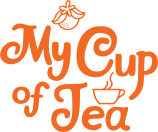
Some Doubted
On Saturday, March 23, MOUND UP, a neighborhood revitalization planning cohort, invigorated many Orange Mound residents and Memphis community leaders to share the vision and responsibility to restore historic Orange Mound to a revitalized “shalom” district in the middle of Memphis. Red Zone hosted the all-day event and faith was renewed as evidenced in the palatable pride felt for the neighborhood. We have long needed an injection of hope. Aggravation over blight and crime has been replaced by an infusion of courage to join in solutions.
Experts dialoged and related local and federal programs which are already in place and available to Orange Mound youth, adults, and seniors. Among the many within reach are free youth camps, rent assistance, small engine repair, mental health advocacy, criminal justice liaisons, and many more. Most were unaware of the resources in place for solving our problems. We needed only to see fresh resurrecting seeds of energy and leadership.
To all who mourn in Zion, (and in Orange Mound), He will give beauty for ashes, joy instead of mourning, praise instead of heaviness… the planting of the Lord, that He may be glorified. Isaiah 61:3
Enthusiasm saturated the oxygen we breathed. The women in the audience began to sense an empowerment, even though as residents in The Mound, they are single and often without connections. Despair has surrendered to optimism and ownership. Fresh and vigorous seeds have been planted on the Mound. We are mounding up to bring shalom to the present and future generations of our families.
But some departed in doubt.
Sunday, Passover Weekend, two thousand years ago, the eleven male disciples of Jesus headed for the mountain He had reserved for their reunion. For two days prior, their despair and heartbreak had been unbearable. They had succumbed to profound sorrow and futility. Despondency over the crucifixion of their rabbi and friend, Jesus, whom they thought was the Messiah, had convinced them the health of their nation was doomed and life must return to tragedy and failure. For several it would be fishing, and for all it would be subjugation to the Romans and religious leaders who despised them.
However, the women, (Matthew 28:8-10), had reported to them that very morning that Jesus was alive indeed in a resurrected body, and He was calling a meeting with them in Galilee. It made no sense. Why would women, weak, unvalued, and disrespected be believable? Their credibility was in doubt, their story implausible. Nevertheless, the men went to Galilee, perhaps if only to get away from the calamity in the city.
Then they saw Jesus and in that moment their hope infused the oxygen they breathed. Exhilarated, trusting, and mounding up, they sensed a new day had dawned. They were captivated by the reality of the best news ever revealed to earth and man.
Jesus declared His plan for revitalization, purpose, and change. He commissioned them to be galvanized into unity and community. He promised to equip them with the equivalent of one omnipotent program, which remains to this day, in the gift of His Spirit.
Matthew 28;17b: “but some doubted”
Good news is hard to believe at first for skeptics. Jesus is patient with them and us. He supplies proofs as needed to encourage His followers into action. But some will never participate.
The solution for Orange Mound and the solution for what ails all of us caught in the morass of sin and doubt is the same. Jesus is the Way and the Way Maker. Doubters, don’t miss the unveiling of the vision at hand. He lives to bring our needs before the Throne of God, whether they be personal or corporate, for Orange Mound or your family. His will is to revive our spirit and our neighborhood. His means are inexhaustible. We need only to agree, confess, and hold on as He makes all things new.
Those who doubted that day in Galilee clearly resolved their vacillation. Each of them established personal missions and intensified commitment to bring about what Jesus promised. He provided convincing proof for them, and He has for us. We are His and He lives to make all things new. He has quickened us to believe:
My people will live in a peaceful neighborhood - in safe houses, in quiet gardens. (Isaiah 32:18 MSG)














